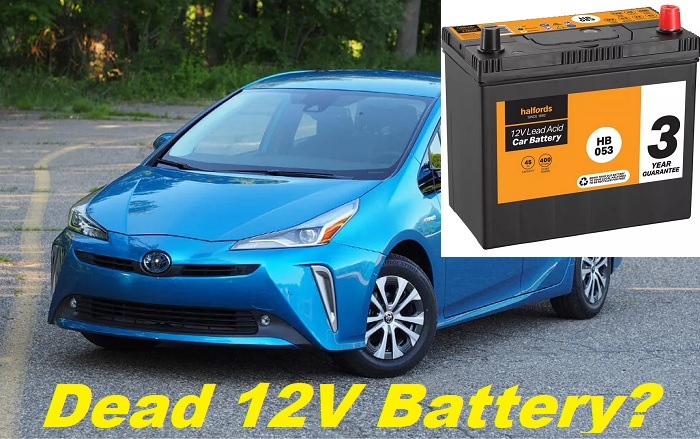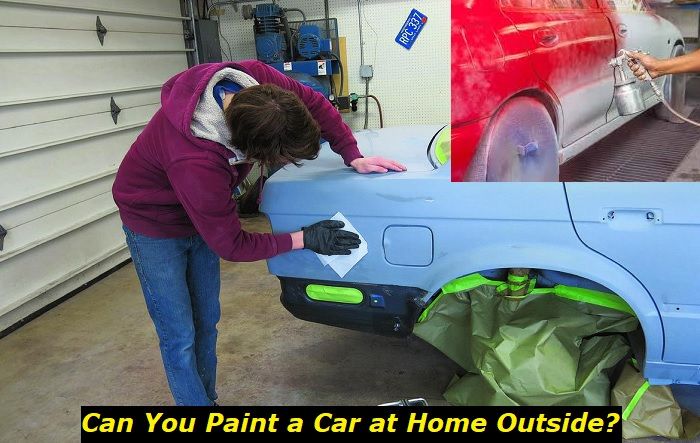If you're a Toyota Prius owner, mechanic, or even a car enthusiast, you're probably more than aware that the Prius is an excellent hybrid car. In fact, it was the very first mass-produced hybrid on the market.
Low 12V battery message highlights
- Common reasons:12V battery has low voltage, aux battery is dying
- How to fix:charge the battery, replace the 12V battery
- Possible consequences:car may not start eventually
- Priority level:High
- Can you drive?Yes
- DIY repair:Possible
- Repair price range:$150-$250

What is a low battery?
A low battery essentially means that the car's battery isn't charging correctly. This means that your car won't receive sufficient voltage from the battery to function properly, which can cause some very serious problems.
There's a warning light on most vehicles to indicate that the battery isn't charging correctly. So, if you're worried that you may have a low battery, this is the first place you should check.
Symptoms of a low 12-Volt Battery
Here are the biggest signs that your Prius has a low 12-volt battery:
- Failure to start:One of the most common symptoms of a low battery is that the car will fail to start. Because the Prius is a hybrid, it relies heavily on the battery. So, if the battery is weak or malfunctioning, there may not be enough power to even start the vehicle. Alternatively, the battery may have enough juice to start the car, but the 'start' button won't respond, which can be even more frustrating!
- Frantic lights:Some Prius users have reported that their interior and exterior lights dimmed before putting their Prius in 'ready' mode. But, once it was in ready mode, the lights went bright. So, if your lights are being frantic, it may be a sign that your battery is low and in need of repair.
- Radio Malfunction:The radio is a great indicator of a low battery in a Prius. If you lose your radio pre-sets when the car starts up, you can be pretty certain that there's an issue with the battery.
- Error messages:Several users have reported an error message that reads, 'Problem with the transmission "p" lock mechanism'. This warning seems to appear most frequently when the car battery is low and is, therefore, a good indicator of a low 12-volt battery.
- Erratic state of charge:If your battery level appears to constantly fluctuate, then you can be pretty certain that the 12-volt battery is low.
- Loss in fuel economy:When your car battery is low, the combustion engine has to work even harder. This can result in seriously lower fuel economy and is a good sign that your battery is low.
These symptoms are the most common when determining if your battery is low. However, this list is not exhaustive, and if you have any concerns with your Prius' battery, you should consult a mechanic immediately, as you could save yourself a lot of time and money in the long run.
How to check if your battery is malfunctioning
If you suspect that your 12-volt battery is malfunctioning, follow these steps to confirm or deny, that the 12-volt battery is the problem with your Prius:
- Power up your Prius: This will give you access to the car's settings, which are going to come in very handy.
- Go to the 'Display' Setting: Go to the settings menu, and then click display. This will give you access to the battery information.
- Put the Prius into 'system check' mode: System check mode allows you to check your car's information and can only be accessed once you're on the display setting screen. To enter system check mode, click the two buttons on the left of the screen six times, in a one-for-one sequence.
- Click 'Display Check': Once you're in system check mode, you'll be able to see a display check screen. Clicking this, and then clicking 'vehicle signal check', will allow you to view the battery's voltage.
- Note your battery's voltage: The voltage is how you can measure the state of your battery, so make sure to keep a note of it.
- Determine if your battery is low: If your battery displays anything under 12 volts, it's low. Anything over 12 volts is acceptable.
Alternatively, you can use a multimeter to determine the voltage of your battery. To use a multimeter, simply connect the positive end to the positive terminal on the battery, and the negative end to the negative terminal. This is a great option if your Prius won't start, or if you want to double-check the voltage after using the previous method.
Problems of a low 12-Volt Batter in a Prius
Driving with a low battery can be incredibly damaging for your Prius. Here are some problems that arise when you do so:
- Poor Fuel Economy:Thankfully, the Toyota Prius is a very clever hybrid, and you can still drive it with a low battery. However, your fuel economy will certainly drop, and you'll lose out on one of the biggest benefits of owning a Prius.
- Poor Ride:Another major problem with driving with a low battery is that the ride will be very uncomfortable. This is because the hybrid system will be running sub-optimally, which can make gear changes, braking and general driving feel jerky and very uncomfortable.
- Compromised Infotainment:The Toyota Prius' infotainment system runs off of the battery. Whilst it is very efficient and draws very little power, if you drive for a long period with a low battery, your infotainment system will eventually fail. It may just be slow and glitchy at first, but eventually, the battery's juice will run out and the infotainment system will fail entirely.
- Strange noises from the engine:To add to your discomfort, driving with a low 12-volt battery will almost always result in strange noises from the engine. These can become very loud and annoying and will make almost any journey a nightmare.
- Increased engine wear:Driving around with a low battery will mean that the combustion engine will have to pick up the slack. Over longer periods, this will result in more wear on the engine's parts, which could cause a malfunction much sooner than you might expect.
- Stalling:A low 12-volt battery could increase your chances of stalling. Stalling can be incredibly embarrassing and make journeys even more uncomfortable.
Driving your Prius whilst the 12-volt battery is therefore not the best idea. Whilst the consequences might not be life-threatening, they are extremely off-putting and will cost you a lot of money in the long run. As such, you must fix the problem as soon as you notice it.
How to Fix a low 12-Volt Battey in a Prius
If you're sick and tired of driving with a low 12-volt battery, here are some options to fix it:
- Recondition your car battery:Car batteries can be reconditioned at home, and it's actually pretty cheap to do so. Reconditioning should lengthen the life of your car battery and is a great starting point when trying to revive your low 12-volt battery.
- Clean the cells:One reason why your car battery may be low is that the cells are dirty. Cleaning them is very easy and could revive your battery. All you have to do is pour the cell solution into a bucket, and then mix some baking soda and water in a separate container. Pour this into the cells and then replace the baking soda solution with the cell solution. But this is the last thing you should do with a battery in your Prius - when there is no other way.
- Charge the battery:Sometimes, the simplest solutions are the most effective. If you find that your car battery is low, then you should take it out of the car and recharge it. If you find that it holds charge once it's reinstalled, you shouldn't have to worry anymore. Charging a battery is fairly simple, but if you're looking for extra information, refer to your owner's manual.
- Replace the battery:The last solution is to replace the battery entirely. Whilst it may seem expensive, replacing the battery will save you a lot of money in the long run, as your fuel economy will be much better. You'll also be able to ride comfortably again, so, if you can't fix the battery, replacing it is essential.
Concluding Thoughts
So, there's everything you need to know about the symptoms and problems of a low 12-volt battery in a Toyota Prius. If you suspect that your Prius has a low battery, you should address it immediately, and try to fix the problem before driving again.
Otherwise, you run the risk of more damage, which could prove much more expensive and burdensome than fixing the problem as soon as it arises. If you ever feel out of your depth, make sure to consult a mechanic, as they'll be able to fix your Prius in no time at all.
About the authors
The CarAraC research team is composed of seasoned auto mechanics and automotive industry professionals, including individuals with advanced degrees and certifications in their field. Our team members boast prestigious credentials, reflecting their extensive knowledge and skills. These qualifications include: IMI: Institute of the Motor Industry, ASE-Certified Master Automobile Technicians; Coventry University, Graduate of MA in Automotive Journalism; Politecnico di Torino, Italy, MS Automotive Engineering; Ss. Cyril and Methodius University in Skopje, Mechanical University in Skopje; TOC Automotive College; DHA Suffa University, Department of Mechanical Engineering






Add comment